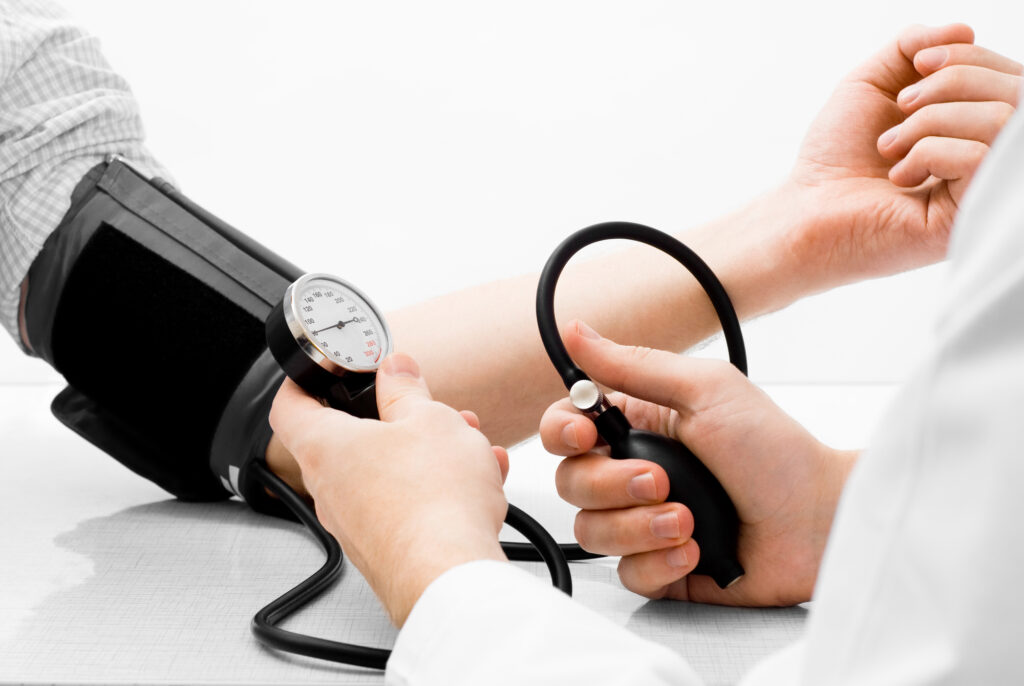An estimated 40 percent of the global adult population has high blood pressure, or hypertension, which puts people at risk of cardiovascular disease and other dangerous health conditions. Previous studies have connected the rising rates of hypertension to increased sugar consumption. The sweet stuff likely boosts blood pressure through many mechanisms, including increased insulin resistance or salt retention.
In recent years, researchers have investigated sugar’s effect on the gut microbiome, and several studies have suggested that probiotics may offer a protective effect against hypertension. And now, a study published October 19 in the peer-reviewed journal mSystems shows that two common strains of probiotics found in many dietary supplements—B. lactis and L. rhamnosus—may be useful in treating this pervasive condition.
“Accumulated evidence supports an antihypertensive effect of probiotics and probiotic fermented foods in both in vitro and in vivo experiments,” said Jun Li, PhD, a computational biologist at the City University of Hong Kong and one of the study’s authors. “So we believed that the dietary intake of probiotic foods would well supplement traditional hypertension treatment.”
The Study
In the new study, the researchers divided 29 mice into four groups. The control group was fed normal drinking water. The second group received high-fructose water. The third was given either high-fructose water with B. lactis or high-fructose water plus L. rhamnosus. The researchers then measured the blood pressure levels of the mice on day zero and at the end of weeks 4, 10, and 16.
As expected, mice in the high-fructose group developed higher systolic and diastolic blood pressure than mice in the control group. Mice that received either probiotic, however, showed significantly lower blood pressure than those fed a high-fructose diet alone. The median systolic pressure of mice given B. lactis and L. rhamnosus decreased by 16.92% and 15.39%, and the median diastolic pressure decreased by 18.56% and 20.62%, respectively. The results, the researchers said, showed that probiotic interventions efficiently prevented the blood pressure elevation induced by fructose.
In addition, the researchers found no difference between the blood pressure readings of fructose-fed mice that received probiotics and the control group of mice that drank only water, suggesting that probiotic interventions could maintain blood pressure at normal levels, Li said.
The researchers also used shotgun metagenomic sequencing to look for links between altered gut microbiota and changes in blood pressure. They found an increase in Bacteroidetes bacteria and a decrease in Firmicutes bacteria in the gut microbiomes of the mice fed a high-fructose diet. Treatment with probiotics, however, returned those populations to levels found in the control group. In addition, the analysis identified new microbial signatures associated with blood pressure: Increased levels of Lawsonia and Pyrolobus bacteria, and decreased levels of Alistipes and Alloprevotella bacteria, were associated with lower blood pressure.
Conclusions
While they admit several drawbacks to the study, including its small sample size, the researchers said that the results merit further research. They are now planning a large clinical trial to see if the protective effect of probiotics extends to humans with hypertension.
“Probiotics present a promising avenue in preventive medicine,” said microbiologist Zhihong Sun, PhD, of Inner Mongolia Agricultural University, another of the study’s authors. “[They offer] potential in regulating hypertension and reshaping our approach to cardiovascular health.”






